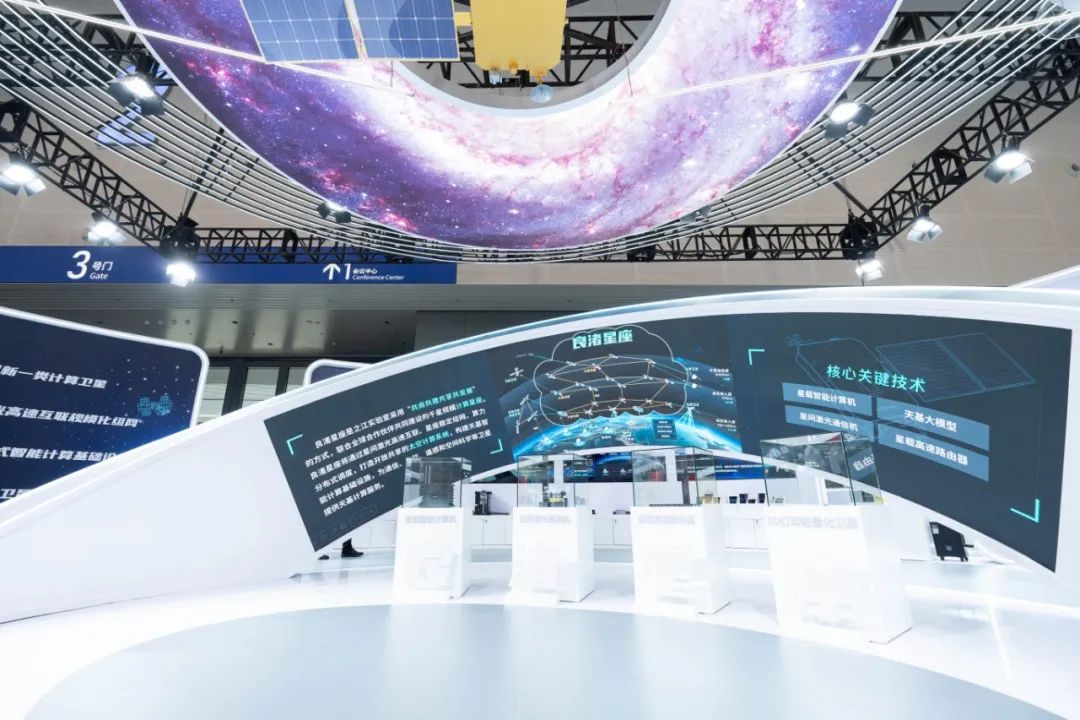

On September 25, the third Global Digital Trade Expo officially opened in Hangzhou. The "Liangzhu Constellation" developed by Zhejiang Lab (ZJ Lab) made its debut at the Expo's comprehensive exhibition area.

Computing has been driving the advancements of technology, civilization, and society, and is facilitating the arrival of a new space era. The "Liangzhu Constellation", a forward-looking space computing system, aims to empower the development of the space age through innovative computation. This constellation consists of thousands of satellites, utilizing inter-satellite laser communications for high-speed connectivity, stable constellation networking, and distributed computational power management. This enables real-time data transmission and computation in space, and instant delivery of results to Earth. The project aspires to create an open and shared space computing system, establishing space intelligent computing infrastructure that provides computing services for satellites involved in communications, navigation, remote sensing, and space science.

In the exhibition area, the core hardware of the "Liangzhu Constellation" was on display: an onboard intelligent computer with a computing capability of 1 POPS, inter-satellite laser communication devices with a maximum communication rate of 100 Gbps, and onboard high-speed routers with Tbit-level data exchange capabilities. Additionally, a foundation model with tens of billions of parameters - the Space Foundation Model - was showcased, which will coordinate satellite operations to process multi-source data autonomously in orbit, accomplishing various tasks such as surface activity monitoring, astronomical observations, and meteorological monitoring.

"We will adhere to the principle of 'planning together, building together, and benefiting together and developing together', and collaborate with global partners to build a large system to empower relay measurement and control communications, low-orbit navigation enhancement, real-time remote sensing monitoring, and space science experiments," said CHEN Hongyu, Deputy Director of ZJ Lab's Research Center for Space Computing System. At present, the space computing system brings together more than 10 leading domestic enterprises and research institutions in the aerospace field, including ADA Space, HiStarlink, Tianlian TT&C, Emposat, and STAR.VISION. The Lab's exhibition area also features the latest achievements from its ecological partners and video interviews with experts from both domestic and international institutions, illustrating the significance of global cooperation on space computing and the concept of open innovation from various perspectives.

"Through this Expo, we hope to communicate the objective of the 'Liangzhu Constellation' in achieving space computing to all guests. We also welcome more domestic and international research and innovation institutions to collaborate with us in realizing our vision of space computing," said CHEN Hongyu.











